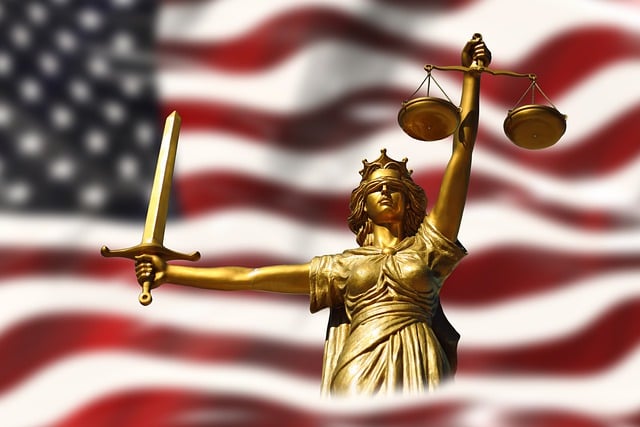Corporate crime investigations tackle complex cases of fraud, corruption, and environmental violations, with success relying on meticulous documentation and forensics. Common Reasons for Appeal Denial stem from procedural errors, insufficient evidence, and ethical failings. To avoid these, investigators must maintain integrity, document thoroughly, and leverage advanced forensics, ensuring justice and public trust while navigating legal complexities.
Corporate crime investigations are vital to upholding integrity within businesses. This article delves into the intricacies of understanding these investigations, exploring common legal loopholes and defenses that often arise. It highlights the pivotal role of forensics in appeal cases, while also addressing ethical considerations for investigators. Furthermore, it examines the significant impact of denied appeals on businesses and sheds light on some of the common reasons for appeal denial.
- Understanding Corporate Crime Investigations
- Common Legal Loopholes and Defenses
- The Role of Forensics in Appeal Cases
- Ethical Considerations for Investigators
- Impact of Denied Appeals on Businesses
Understanding Corporate Crime Investigations

Corporate Crime Investigations delve into complex and sensitive matters where businesses or their representatives have engaged in illegal activities. These investigations encompass various types of misconduct, from financial fraud to corruption and environmental violations. Understanding this process is crucial for several reasons, especially as it can significantly impact a company’s future. One key aspect to grasp is that these inquiries are not merely about uncovering wrongdoings but also ensuring justice and deterring potential perpetrators.
The common reasons for appeal denials in such cases often stem from the complexity of white-collar and economic crimes. When investigators navigate all stages of the investigative and enforcement process, they must meticulously document evidence to avoid indictment. This includes gathering comprehensive data, conducting thorough interviews, and following legal protocols. By doing so, they can strengthen their case, increase the likelihood of a successful prosecution, and minimize the chances of appeal denials, ultimately ensuring that justice is served while avoiding potential legal pitfalls.
Common Legal Loopholes and Defenses

Corporate crime investigations often navigate complex legal landscapes, where understanding common defenses and loopholes is crucial for achieving extraordinary results. One of the primary challenges lies in the all stages of the investigative and enforcement process, where companies may employ various strategies to evade responsibility. For instance, they could argue that their actions were not illegal under existing laws or that they had no knowledge of any misconduct, a defense often invoked to mitigate penalties. Additionally, complex corporate structures and offshore entities can be exploited, making it difficult to attribute blame and hold individuals accountable.
The common reasons for appeal denial further highlight these challenges. Companies may attempt to challenge evidence, raise questions about procedural fairness, or argue that existing laws do not adequately address their specific situation. However, successful appeals are often reserved for cases with clear legal precedents or significant procedural errors. Navigating these defenses requires a deep understanding of both the criminal justice system and the unique dynamics of corporate misconduct, ultimately impacting how effectively philanthropic and political communities can hold corporations accountable for their actions.
The Role of Forensics in Appeal Cases

In corporate crime investigations, forensics plays a pivotal role, especially in appeal cases where the outcome can significantly impact the future of individuals and organizations. The scientific examination of evidence is crucial in uncovering the truth, providing concrete facts that can either confirm or challenge initial findings. Forensics experts utilize advanced techniques to analyze digital data, documents, and physical evidence, ensuring that every piece contributes to a comprehensive understanding of the case.
Common Reasons for Appeal Denial often stem from insufficient or contaminated evidence. However, robust forensics practices help mitigate these issues by delivering accurate, unbiased results. The integrity of forensic analysis can lead to the complete dismissal of all charges if the evidence strongly suggests innocence or a procedural malfunction. This not only benefits individuals facing corporate crime accusations but also strengthens the trust between businesses, the philanthropic and political communities, and the justice system as a whole.
Ethical Considerations for Investigators

In the realm of corporate crime investigations, investigators face a delicate balance when navigating complex ethical dilemmas. As professionals, they must uphold the highest standards of integrity and fairness throughout their inquiries. Common reasons for appeal denials often stem from unethical practices, such as failure to disclose relevant evidence, biased data collection, or violating the rights of individuals under investigation. These issues can significantly impact the credibility of the entire process, ultimately affecting the outcome of jury trials.
Across the country, maintaining impartiality is paramount. Investigators should avoid any actions that might lead to avoiding indictment or influencing outcomes. They must ensure transparency, document every step meticulously, and protect the privacy of sources and subjects. By adhering to these ethical guidelines, investigators contribute to a robust justice system where accountability is ensured without compromising fairness, fostering trust in the legal process.
Impact of Denied Appeals on Businesses

The impact of denied appeals can be profound for businesses involved in corporate crime investigations. When an appeal is rejected, it not only validates the findings of the initial investigation but also serves as a stark reminder of the consequences that come with non-compliance with legal and ethical standards. This can lead to significant reputational damage, as high-stakes cases often attract media scrutiny and public oversight. Across the country, businesses have faced severe repercussions for their actions, underscoring the importance of meticulous record-keeping and transparency throughout all stages of the investigative and enforcement process.
Common reasons for appeal denial include procedural errors, insufficient evidence, and a failure to address the core issues raised by the accused. In many instances, companies inadvertently overlook critical aspects of the investigation or provide inadequate explanations for their actions. Such denials highlight the need for robust internal control mechanisms and a culture that fosters ethical behavior. This is especially crucial in high-stakes cases where the stakes are not just financial but also involve maintaining public trust and integrity across the industry.
Corporate crime investigations are complex, requiring a multifaceted approach. By understanding legal loopholes, leveraging forensic evidence, and adhering to ethical standards, investigators can ensure fair outcomes. However, despite their best efforts, appeals may still be denied, often due to common reasons such as procedural errors or insufficient proof. It’s crucial for businesses to recognize the impact of denied appeals, which can not only affect their reputation but also lead to significant financial consequences. Therefore, proactive measures and robust internal controls are essential to mitigate risks and navigate the legal landscape effectively.






